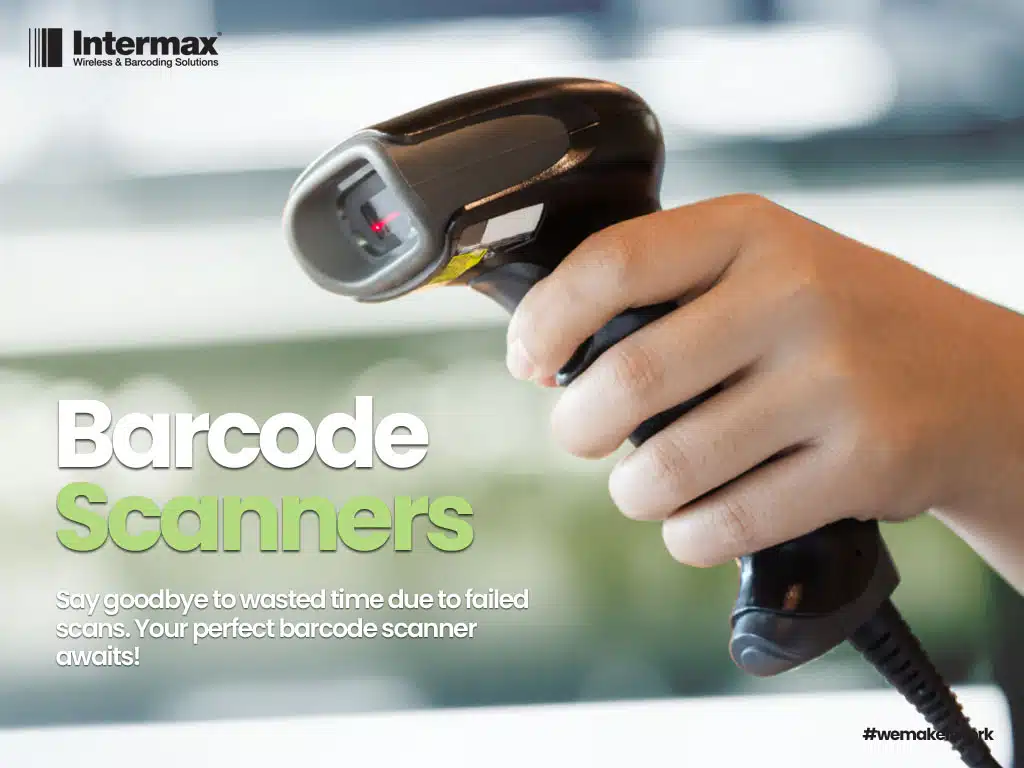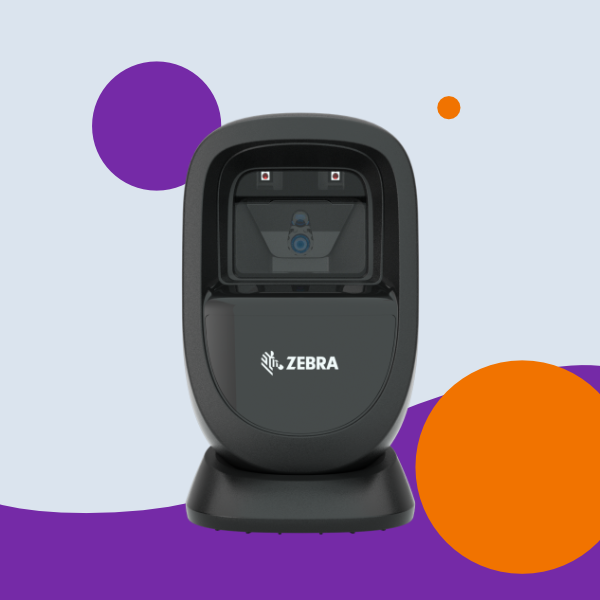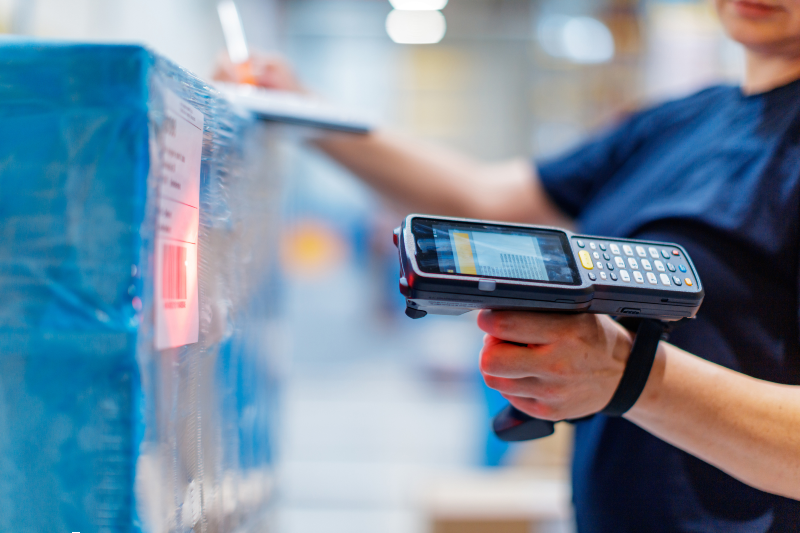Selecting the Right Barcode Scanner for Your Organization Demands
Selecting the suitable barcode scanner for your business calls for a nuanced understanding of your particular operational demands and ecological problems. Factors such as scanner type, rate, and compatibility with existing systems play a critical duty in figuring out the best selection.
Recognizing Barcode Scanner Kind
When it pertains to selecting a barcode scanner, comprehending the numerous kinds readily available is important for conference particular organization requirements. Barcode scanners can be categorized into a number of types, each made for different applications and settings.
Fixed-mount scanners, on the other hand, are developed for high-volume scanning applications, often located in assembly lines or check out counters. These scanners are mounted in a stationary setting, enabling for quick scanning of multiple things in succession.
Another type is the mobile computer, which incorporates scanning abilities with computing power. These tools are optimal for field operations or storehouse monitoring, making it possible for information collection and real-time inventory monitoring. Furthermore, there are commercial scanners that are constructed to endure extreme environments, such as extreme temperatures or exposure to dirt and moisture.

Key Features to Consider
What crucial features should services prioritize when selecting a barcode scanner? Scanning rate is essential, as faster scanners enhance functional performance, particularly in high-volume settings. The scanner's ability to check out different barcode layouts is likewise important; guarantee it sustains popular types like QR codes, UPC, and Code 128 to accommodate diverse supply products.
Longevity is an additional key feature, particularly for businesses in sturdy settings. Seek designs that are constructed to withstand drops, dirt, and dampness. Furthermore, consider the connection alternatives offered; whether you like USB, Bluetooth, or Wi-Fi, the right connection can improve integration with existing systems.

Evaluating Your Organization Atmosphere
To successfully pick a barcode scanner, companies must take stock of their certain operational atmosphere. This analysis consists of evaluating the physical format of the office, the nature of the products being checked, and the normal conditions under which scanning occurs. A retail setting might need handheld scanners that can swiftly refine deals at the check out, while a storehouse setup could benefit from ruggedized scanners developed to sustain harsher problems.
Additionally, think about the quantity of scanning called for. High-throughput environments may necessitate advanced scanning innovations, such as fixed-position scanners or mobile tools that can operate effectively in hectic scenarios. The assimilation capabilities with existing supply administration systems also play a critical function; guarantee the selected scanner can flawlessly get in touch with software systems being used.
A scanner that fulfills current demands could not be enough as service expands. By thoroughly assessing these variables, services can choose a barcode scanner that not just satisfies immediate needs however additionally sustains long-lasting operational effectiveness and flexibility. barcodes scanners.
Budgeting for Your Scanner
Having actually assessed the functional atmosphere and determined the particular demands for a barcode scanner, the next action involves careful budgeting to make certain a wise economic investment. Developing a budget starts with determining the overall costs related to the scanner, consisting of initial purchase price, functional expenditures, and possible upkeep fees.
When picking a barcode scanner, consider the variety of available choices, from portable tools to fixed-position scanners, as prices can vary significantly. It is vital to balance cost with functionality; going with dig this a more economical model may bring about enhanced operational ineffectiveness if it does not satisfy your business demands.
Along with the hardware, aspect in prices associated with software application, training, and prospective upgrades. While it may be alluring to minimize in advance expense, buying a quality scanner that aligns with your operational needs can produce lasting financial savings through enhanced performance and lowered downtime.
Last but not least, consider the total expense of possession, which encompasses the scanner's life expectancy and potential resale worth. By carefully intending your budget, you can make certain that your investment in a barcode scanner will boost your functional productivity and economic efficiency.
Assimilation With Existing Systems
Integrating a barcode scanner with your existing systems is crucial for maximizing its effectiveness and making certain seamless operations. barcodes scanners. A well-integrated scanner enhances workflow efficiency, lowers mistakes, and increases data handling. When choosing a barcode scanner, take into consideration compatibility with your current software program and hardware framework, including your inventory monitoring systems, point-of-sale (POS) systems, and business resource preparation (ERP) services
Review whether the scanner makes use of standard procedures such as USB, Bluetooth, or Wi-Fi, which can facilitate simple assimilation. Additionally, examine whether the scanner's software application supplies APIs or SDKs that enable customization and assimilation with exclusive systems. This is particularly essential for organizations with unique operational requirements.
As your organization expands, your systems view ought to be able to accommodate added scanners and handle enhanced information quantities without considerable reconfiguration. Ultimately, spending in a barcode scanner that effortlessly incorporates with your existing systems will certainly yield lasting advantages, boosting accuracy, efficiency, and general performance within your operations.

Verdict
To conclude, choosing a suitable barcode scanner demands an extensive evaluation of numerous factors, consisting of scanner kinds, crucial functions, and the specific service atmosphere. Proper budgeting for both acquisition and operational expenses is imperative, alongside ensuring compatibility with existing systems. By thoroughly thinking about these components, companies can enhance efficiency and performance, ultimately leading to improved functional end results. The ideal barcode scanner acts best site as a crucial tool in streamlining procedures and facilitating reliable inventory administration.